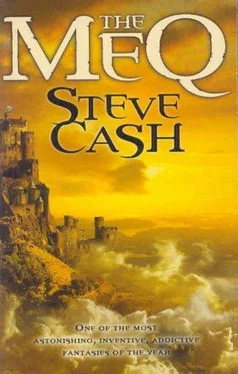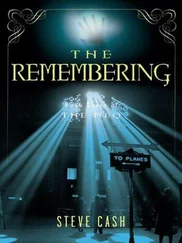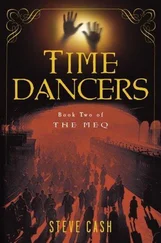Steve Cash - The Meq
Здесь есть возможность читать онлайн «Steve Cash - The Meq» весь текст электронной книги совершенно бесплатно (целиком полную версию без сокращений). В некоторых случаях можно слушать аудио, скачать через торрент в формате fb2 и присутствует краткое содержание. Год выпуска: 2005, Издательство: Del Rey, Жанр: Фэнтези, Детективная фантастика, ya, на английском языке. Описание произведения, (предисловие) а так же отзывы посетителей доступны на портале библиотеки ЛибКат.
- Название:The Meq
- Автор:
- Издательство:Del Rey
- Жанр:
- Год:2005
- ISBN:нет данных
- Рейтинг книги:4 / 5. Голосов: 1
-
Избранное:Добавить в избранное
- Отзывы:
-
Ваша оценка:
- 80
- 1
- 2
- 3
- 4
- 5
The Meq: краткое содержание, описание и аннотация
Предлагаем к чтению аннотацию, описание, краткое содержание или предисловие (зависит от того, что написал сам автор книги «The Meq»). Если вы не нашли необходимую информацию о книге — напишите в комментариях, мы постараемся отыскать её.
The Meq — читать онлайн бесплатно полную книгу (весь текст) целиком
Ниже представлен текст книги, разбитый по страницам. Система сохранения места последней прочитанной страницы, позволяет с удобством читать онлайн бесплатно книгу «The Meq», без необходимости каждый раз заново искать на чём Вы остановились. Поставьте закладку, и сможете в любой момент перейти на страницу, на которой закончили чтение.
Интервал:
Закладка:
The mystery of who had attacked Ray and me, and why, had plagued me since we’d left Saint-Louis. Since I had never seen who it was, I could only make wild guesses, and none of them made any sense. I only knew that the man in charge, the man who had stolen the Stone, knew me and knew what I was carrying. Emme and I rarely spoke of the attack. Then, only a day before we entered her village, she said something that triggered a connection, or at least the possibility of one. We were halfway down a sandstone cliff overlooking a dry and desolate valley. The ridge of sandstone ran five miles on either side of us. The sun was setting and everything had the look of either the first or last place on earth. She was talking about her grandfather and how my presence, my existence, would vindicate him and his long-standing story about the Magic Children, a tale she had heard since early childhood, a tale she never quite believed until the day she saw me, Ray, and the man behind us.
“Who is he?” I asked.
“I call him Snake Eyes, but PoPo knows his real name and has always warned me of him. PoPo says the man also knows of the Meq, and would like to steal the Ancient Pearl. He is an evil man, a trader in flesh and murder, and he smells.”
That’s when something dawned on me. Ray had said he thought he knew the man, the “Chinaman” he called him. “Snake Eyes”—“Razor Eyes.” It had to be. “Is the man a Chinese-looking man?” I asked.
“Yes,” she said. “Do you know him?”
“I might,” I said, thinking back to that long-ago day when Baju had been murdered, and the man who had done it—“Razor Eyes.”
That night and most of the following day we stayed in a cave that Emme said PoPo had shown her when she was a girl. It would be a good place, she explained, for us to rest and clean ourselves before the end of our journey. She left the wheelchair on the donkey and carried me in her arms. The entrance to the cave was almost invisible, even from a short distance away, and had not been altered in any manner, except for a few symbols carved in the stone. Farther in, I saw the outline or imprint of hands on the walls. Tiny hands, the hands of children, hands like mine. Emme said there were other caves in the area with similar carvings and drawings, but this was the only one with a hot mineral spring. Twenty yards from the entrance was a natural cavity in the rock floor where the spring formed a pool. Emme lowered me into the steaming, mineral-rich water, then lit several candles that were hidden in niches and crevices around the pool. The effect was immediate and I felt better in five minutes than I’d felt in five weeks.
“The best surprises are the simplest pleasures,” Emme said, climbing in next to me.
I glanced over at her. “Whitman?”
“No,” she said, laughing and splashing water in my face. “Me.”
We both laughed and that was the moment I chose to ask her where and when she had learned to speak English. Her expression changed instantly and she looked away from me, staying silent for a full minute. Then she turned back and said, “It is a little complicated.”
“Believe me,” I said, “I am used to that.”
For the next hour I heard the most improbable and unlikely story I could imagine — a story of shipwreck, slavery, love, betrayal, and heartbreak, involving her mother, Libe (now dead), a desert warlord named El Heiba, and her father, a black American engineer who called himself Ithaca. Someday I will retell it in its entirety, but the essence is that Emme and her grandfather learned to speak and read English from her father and three books he left behind — two books of elementary grammar and a copy of Leaves of Grass by Walt Whitman. When she finished, it was evident that her father’s appearance and disappearance was an unseen driving force in her life. I asked her if he was still alive and she hesitated, staring into the water, then said simply, “I do not know.”
The following day we rested, bathed, ate, and did very little else. Emme said we would stir up less commotion by arriving after dark. We waited for sunset, then left the cave for the last few miles of our journey. The air was almost cool as we descended the cliff. It turned pitch-black quickly and even though I couldn’t hear any sounds of wildlife, I knew we were in a vast and wild place. Overhead, a river of stars burned in silence.
We arrived at the edge of her village and were met by several children who seemed to be waiting for us. They ranged in age from about six to twelve, but it was hard to tell in the darkness. They were smiling and giggling. Emme said they had seen her care for many strange orphans in nature, but never a white child. When they saw her help me off the donkey and into the wheelchair, their speech became more animated. Emme had to quiet them and eventually scold them, waving her arms and making them scatter back into a maze of dwellings.
She wheeled me in through what I took to be the back door of a structure that was very simple and unusual at the same time. It was two-storied, perfectly square, and made out of mud bricks. It was small, maybe twenty by twenty feet around. The roof was banded straw or reeds in a pyramid shape and seemed to top the dwelling like a hat. Close by, there were other structures, some in the shape of cylinders, but it was too dark to tell who or what they housed.
She showed me the place I would be sleeping, a simple pallet that she raised with mud bricks to a level where she could easily get me in and out of the wheelchair. Once our belongings were inside, I stacked my two small suitcases against the wall and rested Ray’s bowler on top. I knew that inside one of the suitcases I had Mama’s glove wrapped in Star’s scarf. Under my shirt and around my waist, I still wore my money belt full of shiny American double eagles. I suddenly felt lucky. I was alive and conscious, and even though I was barely mobile somewhere in the most remote part of the world, I knew I had all I needed, the reason and the means to heal and keep going. It was stacked right there in a small pile against the wall.
Emme helped me onto the pallet and straightened my legs.
“Emme,” I said, “I am more than grateful.”
“It is nothing,” she said. “It is I who am grateful because tomorrow PoPo will come to see you. I doubt he ever thought he would see one of the Magic Children again.”
“Again? What exactly does that mean?”
“I think PoPo should answer that,” she said. “Tomorrow.”
There are horseflies in West Africa — big ones. Wherever man and his animals go, wherever their food, their shelters, their droppings are, the horsefly is their companion.
I awoke to one crawling on the curve of my ear. I jerked my head involuntarily and it buzzed away. I was lying on my side staring at a drab brick wall. Behind me, over my shoulder, I heard someone stifle a laugh. I turned my head and saw him sitting on his haunches not three feet away, staring back at me. I assumed it was PoPo. He was an ancient black man with a narrow face and enormous ears. His eyes were large and watery, but very much alive and intense. He wore a strange four-cornered hat with flaps hanging over his huge ears. He almost laughed again, then held a monocle in front of his face. It had a hairline crack in the glass and was attached to the end of a stick, which he held regally. He leaned forward, and behind the monocle, his left eye looked twice as big as his right. Then he set the monocle down and spoke.
“Sometimes I am awake all night,” he said directly to me, not waiting for introductions, “and cannot sleep because I am consumed by the number of lies I have told in my life — lies that got me into trouble, lies that got me out. Lies that came and went as easily as slurred speech and lies that stayed and decayed like rotten teeth. It was lies that followed me and lies that led me on.”
Читать дальшеИнтервал:
Закладка:
Похожие книги на «The Meq»
Представляем Вашему вниманию похожие книги на «The Meq» списком для выбора. Мы отобрали схожую по названию и смыслу литературу в надежде предоставить читателям больше вариантов отыскать новые, интересные, ещё непрочитанные произведения.
Обсуждение, отзывы о книге «The Meq» и просто собственные мнения читателей. Оставьте ваши комментарии, напишите, что Вы думаете о произведении, его смысле или главных героях. Укажите что конкретно понравилось, а что нет, и почему Вы так считаете.












